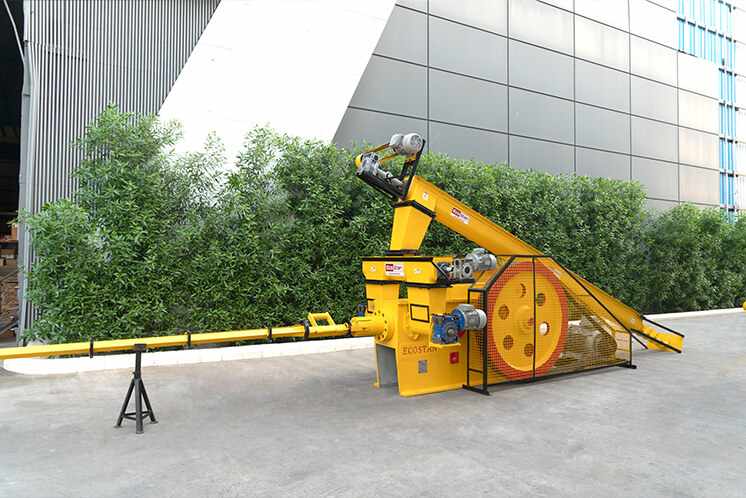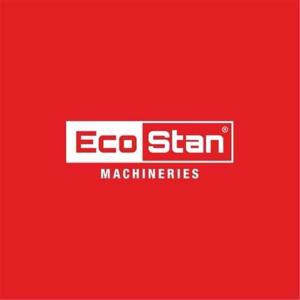
The global demand for renewable and sustainable energy solutions has significantly increased over the past decade. Among the many eco-friendly technologies available, the Biomass Pellet Machine stands out as a reliable and efficient option for producing clean fuel. By converting agricultural waste, forestry residues, sawdust, and other biomass materials into compact pellets, these machines offer an innovative way to reduce dependence on fossil fuels while addressing environmental concerns.
In this article, we’ll explore the top 7 advantages of using a biomass pellet machine for fuel production, highlighting its economic, environmental, and operational value.
1. Sustainable and Renewable Energy Source
One of the greatest strengths of a Biomass Pellet Machine is its ability to convert renewable resources into usable fuel. Unlike coal or petroleum, biomass is derived from plant-based waste materials that can be replenished naturally. Agricultural byproducts like husks, shells, and straw that are often discarded can be effectively transformed into pellets, reducing waste and promoting sustainability.
This renewable approach ensures a continuous supply of raw material for fuel production, making biomass pellets a dependable long-term energy source for industries and households alike.
2. Cost-Effective Alternative to Fossil Fuels
Rising fuel costs have put pressure on industries and homeowners seeking affordable energy options. Biomass pellets offer a cost-effective solution, often priced lower than traditional fuels such as coal, LPG, or diesel. Since raw materials for pellet production are usually agricultural residues or forestry waste, the input cost is minimal compared to mined or extracted fuels.
With the help of a biomass pellet machine, businesses and individuals can produce fuel locally, cutting down on transportation and distribution expenses. Over time, this translates into substantial savings, making biomass pellets a smart economic choice.
3. High Energy Efficiency and Calorific Value
Pellets produced by a biomass pellet machine are known for their high calorific value and energy efficiency. Compared to raw biomass such as firewood or crop residues, pellets are more compact, drier, and denser. This means they burn more completely and generate more heat per unit of weight.
The improved combustion process also ensures consistent performance in boilers, stoves, and industrial furnaces. This efficiency not only reduces fuel consumption but also maximizes the output of heat or energy, making it ideal for both residential heating systems and industrial applications.
4. Environmentally Friendly with Reduced Carbon Emissions
Using a Biomass Pellet Machine significantly lowers the environmental impact of fuel production and usage. Biomass pellets are carbon-neutral, meaning that the carbon dioxide released during combustion is balanced by the carbon absorbed by the plants during their growth.
Compared to coal or oil, biomass pellets emit fewer pollutants such as sulfur dioxide, nitrogen oxides, and particulate matter. This cleaner burning process helps reduce greenhouse gas emissions, contributing to global efforts against climate change and improving overall air quality.
5. Efficient Storage and Transportation
Raw biomass materials such as wood chips, husks, or crop residues are bulky, uneven in size, and difficult to handle. In contrast, pellets produced by a biomass pellet machine are uniform, compact, and lightweight, making them easier to store, transport, and distribute.
Their reduced volume allows for more efficient logistics, cutting down on storage space and transportation costs. Additionally, the consistent size and density of pellets ensure smooth feeding into automated heating systems, reducing operational hassles.
6. Versatility Across Industries
Another significant advantage of a Biomass Pellet Machine is its ability to produce fuel that can be used across a wide range of applications. Biomass pellets are suitable for:
Residential heating (pellet stoves, boilers, fireplaces)
Industrial energy production (furnaces, thermal power plants)
Agricultural drying (grain, fodder, and crop drying)
Commercial establishments (hotels, schools, and hospitals for heating needs)
This versatility makes biomass pellets an adaptable energy solution, capable of meeting diverse requirements in both small-scale and large-scale operations.
7. Supporting Rural Economies and Job Creation
The production of biomass pellets through pellet machines creates economic opportunities in rural areas. Since raw materials like agricultural residues and forestry waste are sourced locally, communities can set up small to medium-scale pellet production units.
This not only generates employment but also provides farmers with an additional income stream by selling their agricultural waste. In turn, rural economies benefit from new business ventures, reduced dependence on costly fossil fuels, and the promotion of self-sufficiency.
Conclusion: Why Biomass Pellet Machines are the Future of Fuel Production
The advantages of using a Biomass Pellet Machine for fuel production are wide-ranging—from sustainability and cost savings to environmental responsibility and economic development. These machines transform agricultural and forestry waste into high-efficiency, eco-friendly fuel, making them an essential part of the global shift toward renewable energy.
For businesses, homeowners, and industries looking to reduce costs while supporting green energy, investing in biomass pellet technology is a forward-thinking decision.
At Ecostan, we specialize in designing and manufacturing high-quality biomass pellet machines and other sustainable energy equipment. With years of expertise and a strong commitment to innovation, we help businesses and individuals harness the true potential of biomass. If you are looking for a reliable and efficient solution for renewable fuel production, Ecostan is your trusted partner in the journey toward a cleaner and greener future.


Write a comment ...